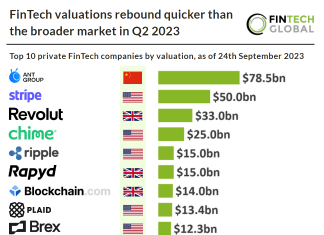It’s easy to be taken in by the flashy digital offering of challenger banks, but new research suggests that they may not be as popular as people think.
Despite a raging pandemic, the new breed of digital banks have reached new heights in recent months. Not only are reports been circulating that Revolut quietly broke even in November, but the challenger bank’s CEO and co-founder Nik Storonsky was also named the UK’s first tech billionaire. In the same month, Starling Bank announced, with much fanfare, that it had reached profitability, much thanks to the FinTech joining the UK government’s Covid-19 recovery lending scheme.
However, a new report from Plum suggests that the growing popularity of neobanks may be a mirage. The money-management app based its research on an analysis of the different banking accounts 450,000 customers connected to with its service.
It found that 91% of Plum customers are linking traditional lender accounts as their primary account in the app. Moreover, of the 9% that had linked a neobank first, 22% also had a traditional bank on standby as a backup as a secondary Plum account.
Taking a look at different age groups, Plum found that 13% of users between the ages of 18 and 24 preferred neobanks over incumbents. For Plum customers between the ages of 24 and 34, that figure stood at 9.1%. Users above the age of 55 were the least interested in using digital banks’ services, with 95% linking traditional banks to Plum. The most popular challenger bank overall for Plum customers was Monzo, which secured a second $60m investment the other week after raising the same amount this summer, and the most linked traditional bank is NatWest.
Digging further, Plum found a clear gender divide between the people linking challenger banks to their Plum accounts. Of the 9% of Plum customers that did link a digital lender to the service, only 34% identified as female, while 51% identified as male. Meanwhile for the customers that linked traditional banks, 53% were female against 37% male.
“There’s a lingering lack of trust in neobanks that still remains among our customers,” said Victor Trokoudes, CEO and co-founder of Plum. “The majority of them are millennial-aged and are clearly comfortable with FinTechs as they are letting Plum put their savings on autopilot. Yet they are not flocking to the neobanks in the way you might expect.
“Women in particular haven’t been won over as it looks like they are choosing to stick with traditional banks. One issue is that you’re tied to opening a bank account with the neobank before you can do anything. This is a big commitment and requires a large amount of customer trust. Inevitably, becoming more bank-like to win that trust means the focus is on being an efficient bank rather than on making things more efficient and maximising customer money.”
The research comes on the back of a recent report from software company Temenos. The researchers analysed over ten million online conversations in public forums about personal finance to find out what people really think about neobanks.
Temenos found that while digital banks are strongly associated with financial empowerment, they were also twice as likely to be associated with security and privacy concerns when compared to traditional lenders.
For instance, about 13.7% of the recorded conversations about neobanks included associations with concerns about safety, security or privacy, compared with only 6.7% of those concerns being flagged in conversations about traditional banks.
The Temenos report also highlighted that incumbents were more closely associated with trust, reliability and a wider range of services, echoing the sentiment of the Plum report.
Copyright © 2020 FinTech Global










